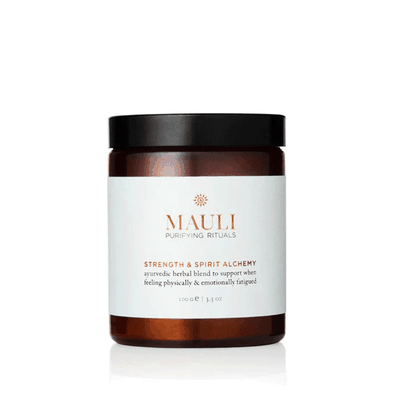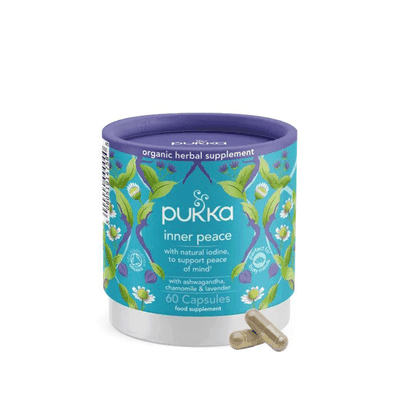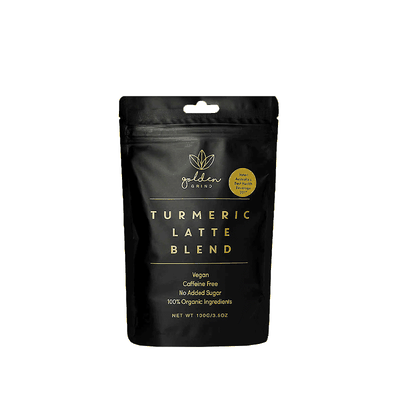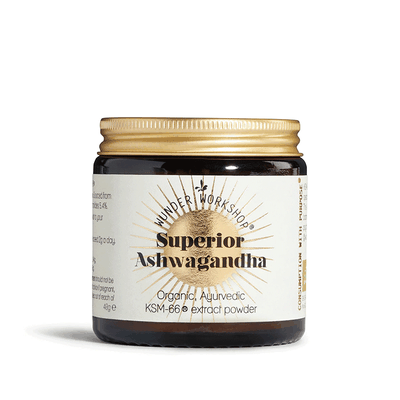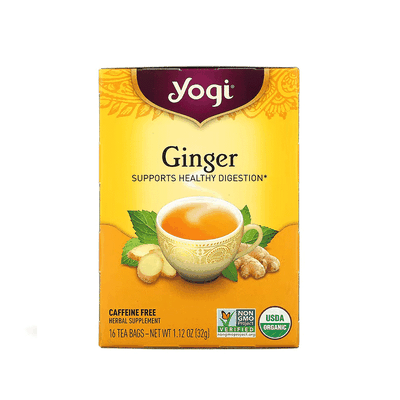

14 Ways To Incorporate Ayurveda Into Your Life
All products on this page have been selected by our editorial team, however we may make commission on some products.
Know Your Dosha
“Ayurveda is less about rules and more about cracking the code of your body so you can make the right decisions for you, at any moment. According to Ayurveda, we are all born with three doshas – also known as ‘life forces’ – and are made up of a unique combination of these forces. Though we all have some of each, most people tend to have an abundance of one or two. As you move through life, the proportion of the three doshas constantly fluctuates according to your diet, environment and the seasons. As they move in and out of balance, they can affect your health, energy and mood. For example, when ‘vata’ gets out of balance, we are colder and drier than normal, so many suffer with bloating, constipation and insomnia, as well as fear and anxiety. Imbalanced ‘pitta’ can lead to skin issues and rashes, frustration and poor digestion; while too much ‘kapha’ in the body can cause a thick, white coating on the tongue, weight gain and brain fog. There are lots of online tests that can help you work out the balance of your doshas.” – Jo Webber, co-founder of The Ayurvedic Academy
Set An Early Alarm
“Although it can be tricky in the dark, winter months, try to set your alarm for as close to sunrise as possible, which will leave you feeling energetic and light. This time of the day – around 45 minutes before sunrise – is known as ‘brahma murta’, which translates as ‘the time of knowledge’ as it’s when our minds are most perceptive. According to Ayurveda, waking during this pre-dawn period can boost immunity, increase energy levels, relieve pain and help maintain the balance of your blood pH.” – Dr Lola Tillyaeva, doctor in psychology & wellbeing activist
Have A Morning Routine
“Get into the habit of having a mug of hot water before your morning cup of tea or coffee. If plain water doesn’t appeal, you can add freshly grated ginger and a squeeze of lemon juice. The warm water will stimulate your gut and loosen any toxins and residual food from the day before. The sour taste of lemon and the spicy flavour of the ginger will also get your digestive enzymes going.” – Jo
Invest In A Tongue Scraper
“Beyond supporting the body’s cleansing process, using a tongue scraper is a good way to remove undigested matter on the tongue. This not only increases the power of your taste buds but also aids digestion. Once you incorporate this practice into your daily routine, you won’t look back. It’s speedy, affordable and just as important to oral hygiene as brushing your teeth.” – Jo
Do More Yoga
“Yoga is the sister science of Ayurveda – the two go hand in hand. Think of them like two sides of the same coin. The problem is the way we approach yoga has changed over the years, with many of us seeing it as a workout as opposed to a form of meditation. Keep in mind that yoga is an ancient practice – its aim is to quieten a busy and restless mind, and find focus through physical postures, breathwork and meditation. A yoga studio should be a place to rest and restore the nervous system, so do your research and find a class that focuses on this side of yoga. All classes should include some form of breathwork and meditation, too. The physical postures are just the warm up. Ironically, many people tend to skip the savasana at the end of a yoga class, but in Ayurveda, that is the most important part.” – Jo
Prioritise Digestion
“Eating is seen as a sacred act in Ayurveda, so enjoy the ritual of regular mealtimes following a true sense of hunger – i.e. when your tummy is rumbling. Try to minimise distractions when eating and take a few minutes to relax at the end of a meal. Aim to chew each mouthful 32 times, although aiming for ten chews is a good start. Ayurveda believes that when we digest well, we are happier and healthier with increased vitality. The strength of our digestion is impacted by the type, quality and also temperature of the food we eat, as well as our emotional state. Things like cold food and drinks and certain food combinations can lead to an imbalance in the gut.” – Jo
Limit Snacking
“To enable your digestive system to work as its peak, try to leave at least five hours between meals. According to Ayurvedic principles, there are three stages of digestion. In the first hour after a meal, you will feel full and sedated; two to four hours after eating, your internal heat rises and your meal is transformed into sustenance for the body. Four to five hours after a meal, lightness and space return to the body and appetite increases. Interrupting this cycle with more food leads to incomplete digestion. Aim for three meals each day, with no snacks in between, to keep your body balanced.” – Lola

CALUM LEWIS/ UNSPLASH

DMITRIY FRANTSEV/ UNSPLASH
Swap Olive Oil For Ghee
“Ghee – clarified butter – is a staple in Ayurveda. You’ll find it in every Indian household. Ghee is a rich source of healthy fats, vitamins and antioxidants and can also help the body better absorb other vitamins and minerals. Healthy fats are often lacking in modern diets, so get into the habit of cooking with ghee, ideally one that is pure and grass-fed.” – Sonja Shah-Williams, Ayurvedic medicine practitioner
Eat More Spices
“Spices offer a wide variety of health benefits. They protect the body from disease and support digestion. Try to include them when you can, and remember that even small amounts make a difference. When making porridge, for example, add ground cinnamon, nutmeg and cardamom. You can even stir through a teaspoon or two of ghee for added healthy fats. Get into the habit of adding spices to eggs, too. Ground ginger and ground turmeric work particularly well with scrambled eggs.” – Sonja
Practise Breathwork
“If you’ve ever heard the advice that deep breathing can calm anxious feelings, it comes from Ayurveda. Ayurveda believes that the way we breathe affects our bodies in various ways, and is just as important as what we eat. Yes, we were born knowing how to breathe deeply, but most of us forget this as we grow up and the stress of life takes over. Deep belly breathing delivers fresh oxygen to our cells, slows the heart rate, lowers blood pressure, relaxes the muscles and cleanses the body by helping the lymphatic system eliminate toxins. It also stimulates the release of endorphins and can effectively relieve stress.” – Lola
Sit In Silence
“Work your way up to sitting in silence for half an hour every day. Listen to your thoughts, let your feelings surface and just ‘be’. In our modern lives, we leave little time for ourselves and often end up following the crowd and make knee-jerk reactions than doing what we really believe we should do. I’m a big believer in listening to your own body as a way to learn more about yourself – this is at the heart of Ayurveda and something that has been lost over the years.” – Sonja
Raise Your Vibrations
“It’s common knowledge that processed food is less beneficial for the body, but in Ayurveda, processed food, like ready meals, as well as red meat and alcohol, dull the body’s vibrations. These types of food are believed to be devoid of energy and light. On the other hand, you can raise your vibrations with high-frequency foods – think green leafy vegetables like kale and chard, berries, fresh herbs, beans and seeds.” – Lola
Have A Light Supper
“Always eat a lighter supper than lunch, and aim to eat it no later than 7pm. Our digestive fire (known as your ‘agni’ in Ayurveda) requires heat, which is found when the sun’s heat is optimal, which is around 12pm to 2pm. By the evening, your body is preparing to slow and cool down, and then recharge once you are asleep. Eating later in the evening means your agni will find it trickier to do its job – you’ll find it harder to get to sleep and digest, and will have undigested food sitting in your gut, which can create a breeding ground for inflammation.” – Sonja
Get Eight Hours Of Sleep
“In Ayurveda, sleep is considered to be one of the three pillars of good health, known as ‘nidra’. Sleep is dominated by ‘kapha’, which creates the heavy feeling of tiredness in our bodies. According to the Ayurvedic clock, it’s best to go to sleep before 10pm, which is when your body is naturally ready for sleep. It’s also essential to have a gap of at least two hours between dinner and bedtime, so the best time to have dinner is 7pm. To improve your sleep, incorporate regular yoga practices and deep breathing exercises in the morning, and in the evening, prepare a calming drink with ashwagandha powder, nutmeg and warm plant-based milk.” – Lola
For more information visit Anala.co.uk, LolaTill.com & TheAyurvedaAcademy.com.
SHOP THE PRODUCT EDIT
DISCLAIMER: Features published by SheerLuxe are not intended to treat, diagnose, cure or prevent any disease. Always seek the advice of your GP or another qualified healthcare provider for any questions you have regarding a medical condition, and before undertaking any diet, exercise or other health-related programme.
DISCLAIMER: We endeavour to always credit the correct original source of every image we use. If you think a credit may be incorrect, please contact us at info@sheerluxe.com.


